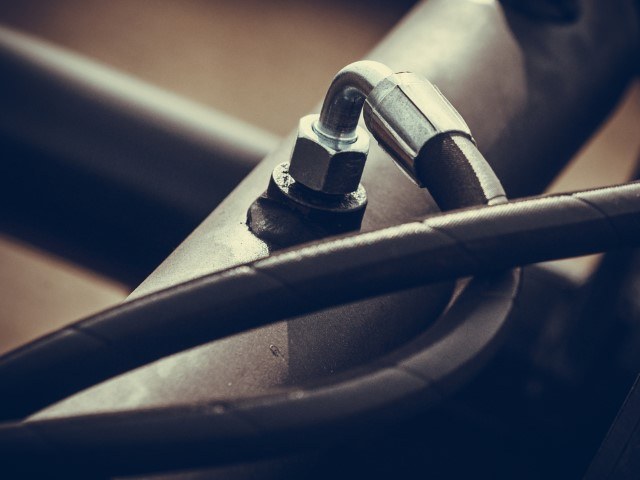Hydraulic systems are the most efficient way to power heavy-duty machines like backhoes, tractors, excavators, and forklifts since they require a lot of power to operate.
Using fluid transfer, a machine can send forces from the engine to moving parts with relatively little loss of intensity using hydraulic hoses.
For this reason, pressurized hose failure is extremely dangerous and can cause serious damage to anyone in the area. It is incredibly important that your hoses are in good shape and you pre-emptively replace them before they break down or fail during an operation.
The Lifespan of a Hydraulic Hose
Understanding how long hydraulic hoses last is critical when you frequently use hydraulic powered machinery. But, as with many other parts and devices, it isn’t possible to pinpoint the exact timeframe that a hose will reach the end of its life. You can’t tell when your computer battery or your car’s timing belt needs to be replaced ahead of time. However, most of the time you can start noticing signs that these things are wearing down before they completely fail. The same is true for a hydraulic hose.
A hydraulic hose has a shelf life of 10 years. But a hydraulic hose on a machine will obviously wear down more quickly. Unsurprisingly, the more you use a machine, the more frequently you will need to replace the hoses. Other factors like temperature, pressure, environment, and fluid type can also cause a hose to deteriorate more rapidly. It is highly recommended that you perform monthly assessments of your hoses and replace them annually or biannually just to be safe.
Signs You Should Replace a Hydraulic Hose
Fortunately, you can notice the majority of problems with hydraulic hoses just by inspecting them visually. The most common causes of hose failure are related to external physical damage, so a monthly checkup can prevent a costly accident. Here are some signs that will tell you it’s time to replace a hydraulic hose:
- Exposed interior wiring due to abrasion
- Deep scratches or chunks missing on the tube
- Kinks in the hose
- A crushed section of hose
- Hydraulic fluid leaks
- Cracked hose fittings or attachments
- Corrosion of hose fittings or attachments
- Increased hose stiffness or dryness due to overheating
When you notice any of these issues with your hydraulic hoses, give Domer’s Inc. a call right away and we can set you up with the right hose for your assembly. We have a wide selection of hoses and fittings, and can cut them on-site so you can get your machine up and running as soon as possible. If you have any questions about our hydraulic hose products or services, please contact us today!
Domer's Inc.
204 SE 10th AvenueOkeechobee, FL 34974
Get Customized Directions Here
Tel: (863) 763-3417
Fax: (863) 763-7339
Email: [email protected]
Business Hours:
M-F 7:30am - 5:00pm
Closed Weekends
Emergency Service
Available 24/7
 Follow Us on Facebook
Follow Us on Facebook


